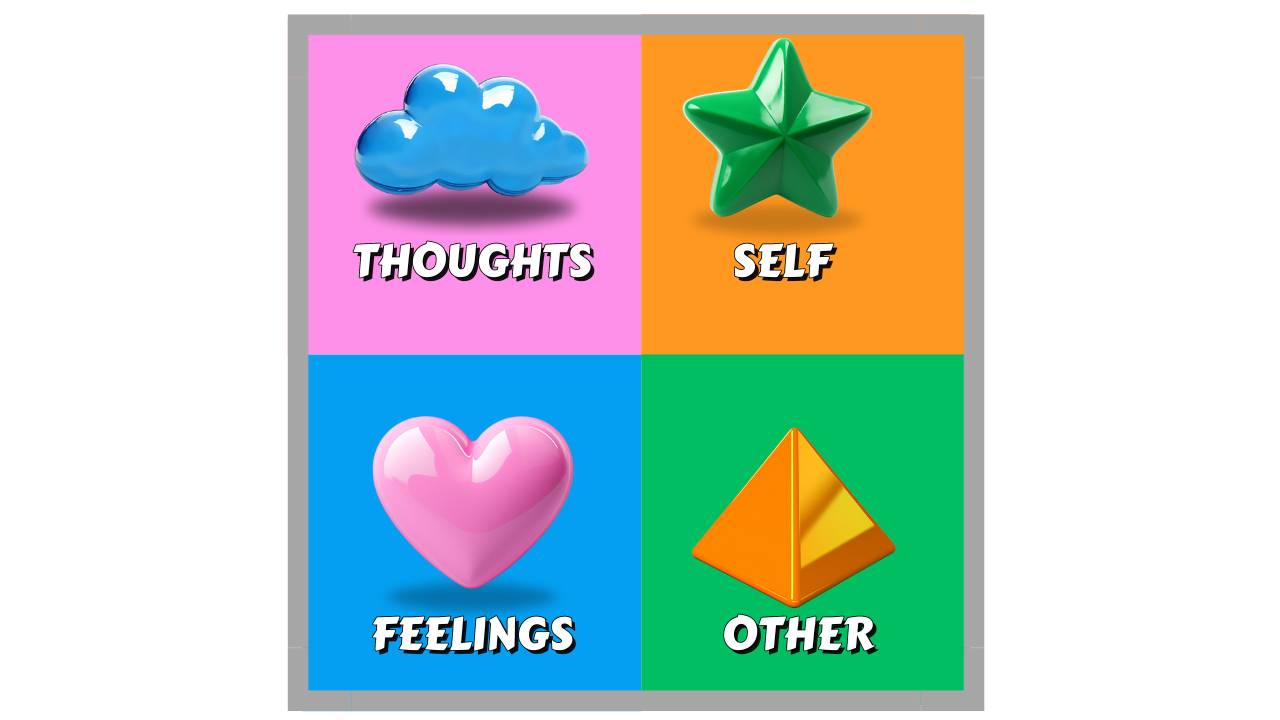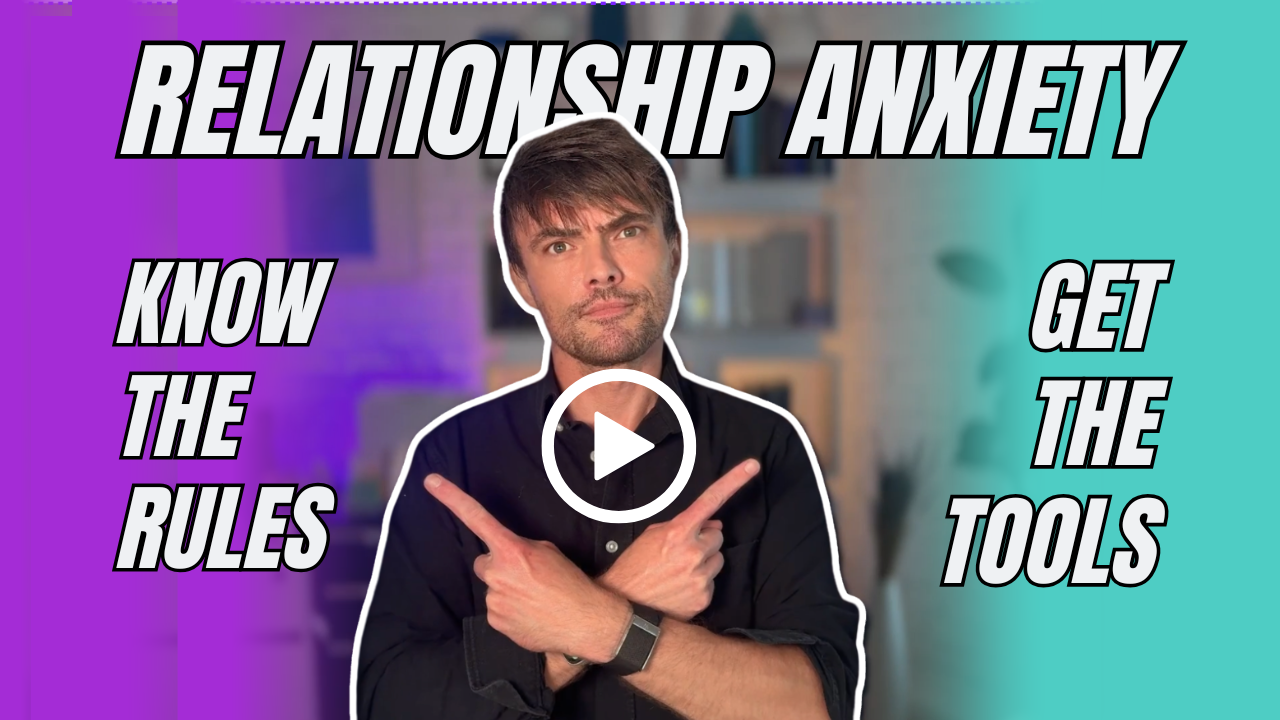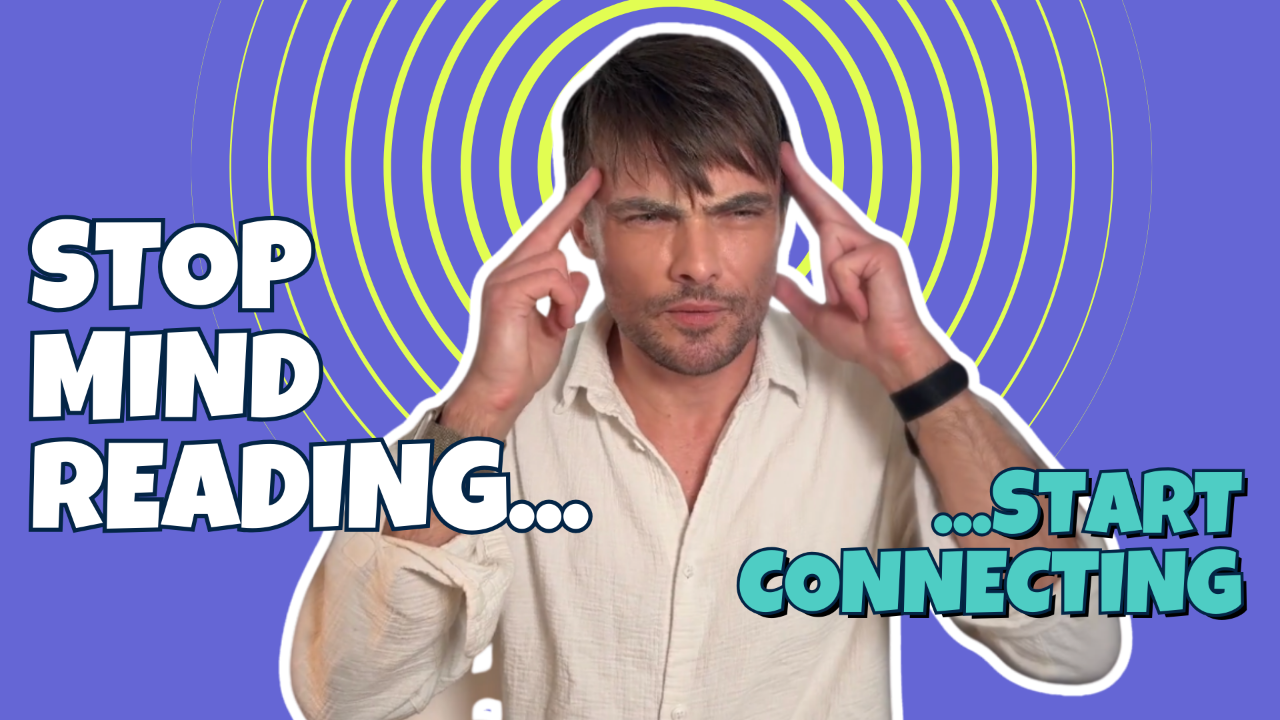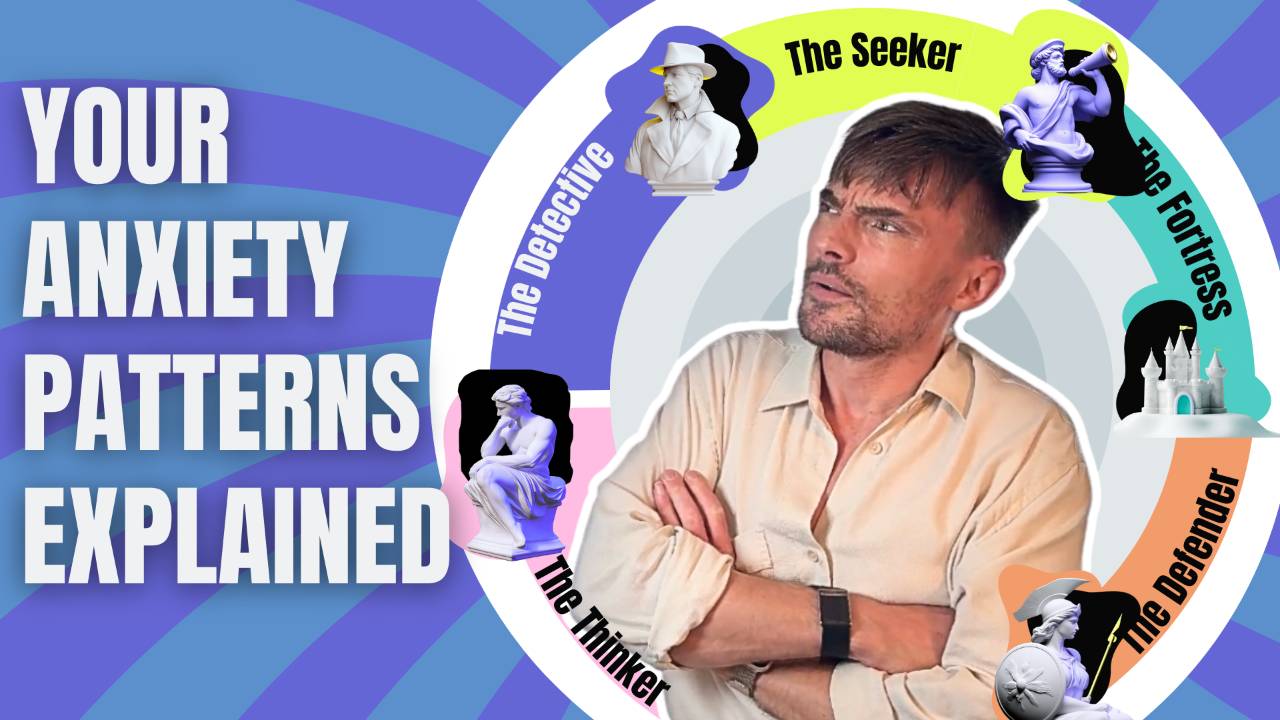Am I A Helicopter Parent? (And What Is Helicopter Partenting?!)
Are you getting overwhelmed with all these new parenting terms? There's a new one every month it seems:
- 'Eggshell Parenting'
- 'Koala Parenting'
and of course, the infamous
My People Patterns is here to break down all the questions you have and help you answer the question, "Am I A Helicopter Parent?
What Is A Helicopter Parent?
This term is a reference to parents' incessant hovering and has gained attention over the years. But what exactly is a helicopter parent, and how does it affect children's lives?
I'm a Licensed Marriage and Family Therapist and parenting coach, with nearly a decade of experience working with parents and families to help create happy, healthy homes for kids to thrive in. I'm Clinical Director & Supervisor and occasionally a Professor of Clinical Psychology. Let me share with you some of my thoughts on parenting that I tell my clients in private practice.
What Is Helicopter Parenting?
Helicopter parenting refers to a style of parenting where caregivers are deeply involved in their child's life. This intense focus on every aspect of a child's experiences can have both positive and negative consequences. Helicopter parents often care so deeply about their kids that they can take excessive responsibility for their children's successes and failures.
Helicopter Parenting is parenting on steroids and Starbucks.
"...[Parents who} over parent are most often very well-intentioned and are trying to support and be there for their children,” Dr Nicole Perry
"....Helicopter parents must learnt to move from 'doing for them', to doing with them, to standing by to admire them" Erna Furman
This is sometimes seen as over-parenting. It involves being overly controlling, overprotecting, and striving for perfection in a manner that exceeds responsible parenting.
Before we look at what makes some parents 'over-parent', lets recap on what we mean by parenting:

The Five Dials Of Parenting Styles Chart
These are five core traits of parenting, and no matter what your parenting style is, it will have some of these elements in the mix. How much or how little of each of these factors you channel in your everyday parenting determines your parenting style. For example some parents have very high expectations for their children in academics or sports, we might, in some circumstances, refer to them as being Tiger Parents.
Warmth
Warmth represents the emotional climate provided by parents. High warmth, demonstrated through affection, empathy, and positive reinforcement, fosters a sense of security and positive self-worth in children.
Control of Autonomy
This relates to parents' influence on their children's psychological and emotional development. High psychological control, such as guilt induction or love withdrawal, can negatively affect a child's emotional health.
Control Of Behaviors
This aspect reflects the extent to which parents guide their children's actions, including setting rules, monitoring activities, and disciplining inappropriate behavior.
Expectations
Expectations are what parents anticipate from their children in terms of behavior, achievements, and growth. When set too high, it can put undue pressure on children, leading to stress and self-esteem issues.
Acceptance
This gauges how much parents acknowledge and validate their children's unique individuality, feelings, and experiences. When well-balanced, it fosters healthy self-esteem and emotional well-being.

Parental Anxiety
Parenting causes anxiety - this has to be a universally understood fact.
The most precious thing in your life greets you at the start if theirs, entirely defenseless and utterly dependent on you. Of course, you are going to want to do everything to make sure that precious bundle of joy is protected, safe, and loved. It would be weird if you weren't sometimes anxious about your child.
Pouring fuel onto the bonfire of arental anxiety are concerns about a potentially unsafe environments filled with risks such as abuse, abduction, and bullying. Let's not forget the dangers of being online, what children might learn, do or see online and who might be lurking in the dark corners of the dark web, waiting to ensare your kid.
In my ten years of being a family therapist, I have yet to meet a parent who ever stops worrying about their child(ren). If you're a parent, the bad news is that this parental anxiety is likely here to stay for a while. The decision is how you let that anxiety impact your parenting.





Parental Anxiety and Parental Control
If parental anxiety is going to move the needle on any of the five dials of parenting, it will most likely be on the Control Of Autonomy dial. This dial encapsulates many of the ideas that trigger parental anxiety-
There is a growing body of research on parental anxiety and the impact it has on children, which underscores a strong association between parental anxiety and parental control.
According to developmental psychology, children turn into healthy happy young adults when they are given enough psychological autonomy to become dependent, rather than independent.
There are three components to generating Psychological Autonomy in a child that parents need to be aware of:
- Establishing a strong and nurturing relationship with our child.
- Cultivating emotional regulation skills.
- Encouraging a gradual increase in responsibility.
It's in the last two of these bullet points that parents with anxiety have great difficulty in.
Parents with anxiety tend to overestimate their child's vulnerability, which often prompts excessive involvement in their lives which hinders responsibility and can shield them from emotional experiences.
Parental anxiety can limit children's participation in routine activities, from outdoor play to socializing with friends and being open to new ideas. Again, these are likely to affect their child's physical and social well-being adversely.
FIVE SIGNS OF HELICOPTER PARENTING
If you are worried that you might be a helicopter parent, here are five signs that you can be on the lookout for.
1. Constant Supervision

Sign #1
These parents also have a tendency to maintain constant surveillance over their children, extending their monitoring into their college years. Whether it's tracking their locations, keeping a close watch on their daily routines, or monitoring their social interactions, the extent of supervision can be exhaustive. .
HEALTHY SUPERVISION
Being aware of your children's whereabouts, their companions, and their activities is a facet of responsible parenting. Equally important is engaging in conversations about online safety and establishing suitable boundaries for internet use.
UNHEALTHY SUPERVISION
Excessively monitoring your child's actions, such as tracking their location excessively or scrutinizing their online activities extensively, can hinder their independence and foster feelings of anxiety or mistrust.
2. Academic Over-Involvement

Sign #2
Some helicopter parents frequently engage excessively in their child's academic matters. This can encompass micromanaging homework and study routines, actively participating in teacher interactions, and even intervening in their child's grades. Research indicates that such intense involvement can lead to diminished academic effectiveness and heightened student an
HEALTHY INVOLVEMENT
Parents promote academic endeavors, provide assistance when necessary, and display genuine interest in their child's school performance. They also empower children to take ownership of their education, fostering a climate of learning rather than imposing it.
UNHEALTHY INVOLVEMENT
Excessive involvement may entail frequently contacting teachers to contest grades, perpetually micromanaging the child's homework or projects, or fostering an atmosphere where obtaining top grades takes precedence over the learning journey. This can result in undue pressure, stress, and a deficiency in self-reliance for the child.
3. Decision-Making

Sign #3
Helicopter parents frequently intervene to make decisions for their children, including significant life choices like selecting a college major or career path. This intrusive approach can inadvertently encroach upon the child's autonomy, increasing the risk of depression and reducing overall life satisfaction
Healthy Decision-Making
Offering guidance and counsel to your child as they navigate choices related to classes, friends, clothing, and hobbies is an integral aspect of parental support. It is vital to impart to them the skills of informed decision-making.
Unhealthy Decision Making
Consistently making decisions on your child's behalf, even when they are capable of doing so themselves, deprives them of the opportunity to acquire essential decision-making skills and may lead to feelings of incompetence or dependency.
4. Rescuing vs Helping

When helicopter parents rush to resolve their children's problems, they unintentionally deprive them of the opportunity to develop problem-solving abilities and cultivate resilience. While addressing immediate issues may be tempting, it can impede the child's capacity to confront challenges and stressors in the future, potentially resulting in ineffective coping mechanisms and heightened anxiety levels.
Healthy 'Helping'
Parents should assist their children in handling challenging situations by providing guidance and advice, fostering problem-solving skills, and intervening when necessary for their well-being.
Unhealthy 'Rescuing'
If parents consistently intervene to solve every problem for their child, it can impede the cultivation of resilience, critical thinking, and problem-solving capabilities. Children may develop the belief that they are incapable of managing challenges independently.
5. Fear-Based Parenting vs Concern.

Prioritizing children's safety is crucial. However, an excessive focus on safety can limit their capacity to evaluate and handle risks autonomously. Promote secure exploration, outdoor play, and age-appropriate activities that nurture resilience and resourcefulness. Educate them about safety precautions rather than isolating them from all potential hazards.
Parenting From Safety
Ensuring children's safety is a fundamental parental responsibility. This may entail establishing boundaries for activities involving some degree of risk and educating them about potential hazards in a manner suitable for their age.
Fear-based Parenting
An excessive fixation on safety, especially when the perceived risks are relatively low, can result in unwarranted worry and anxiety for children. Overprotection can curtail their experiences and impede their capacity to autonomously assess and handle risks.
How To Stop Helicopter Parenting
Grounded Parenting: The Anti-Anxiety Parenting Course
It's important to recognize just how much anxiety underlies parenting behaviors and the expectations high-anxiety parents set for the kids.
Dr. Murray Bowen, the pioneer of Family Systems Theory, introduced a model that provides a framework for reducing this type of anxiety. By following this model, parents can better balance the five essential aspects of parenting: warmth, acceptance, expectations, autonomy control, and behavior control.
Addressing helicopter parenting involves grounding and nurturing your connections and interacting in less anxious ways. The goal is not to withdraw completely but to reframe our approach, allowing our children to navigate their lives more independently.
My People Patterns offers the Grounded Parenting course, which adopts a family systems approach to understanding chronic anxiety, reducing it, and assisting helicopter parents in easing back on excessive hovering. This approach gives parents more time to enjoy their role as caregivers.
Learn More About Grounded ParentingWhat Is The Impact Of Helicopter Parenting On Children?
There have been countless studies on the impact of helicopter parenting; these studies show that children of helicopter parents are associated with higher levels of anxiety and depression, poor academic results, a deficit in social and emotional skills, decision-making, and even higher levels of narcissism or entitlement.

MENTAL HEALTH IN YOUNG ADULTS
This study shows us that young adults with helicopter parents seemed to perform poorly in certain academic settings. The study linked this to perfectionistic tendencies, poor motivation and goal avoidance.

ANXIETY AND STRESS
This study shows that adult children of helicopter parents went to college with ineffective coping skills which manifested as higher levels of anxiety and stress

CHILDHOOD DEPRESSION
Another study shows there is a link between over parenting and symptoms of depression in children, the study found that this might be in part due to higher levels of self-alienation and lower levels of authentic living.

SOCIAL SKILLS
One study saw that helicopter parenting had an impact on the ability of their children to form social bonds, the over-protective nature of some helicopter prevented kids from interacting in healthy ways, depriving them of vital social skills.

EMOTIONAL REGULATION
One of the vital parts of psychological autonomy is emotional regulation, that is, in short, letting children have their feelings in order for them to learn how to manage them. Helicopter parents sometimes don't let their kids develop this skill.
More Long -Term Impacts of Helicopter Parenting
Some more research on the impacts of Helicopter Parenting I've found recently reveal some alarming trends.
-
Impaired Problem-Solving Skills: When parents consistently step in to solve their children's problems, it can hinder the development of essential problem-solving skills. Over time, this may result in a heightened reliance on others for solutions, potentially leading to a sense of helplessness in the face of challenges (Segrin et al., 2013).
-
Reduced Self-Efficacy: Research indicates that excessive parental control and decision-making on behalf of the child can negatively affect a child's belief in their ability to succeed or manage their own life—an aspect known as self-efficacy (Bradley-Geist & Olson-Buchanan, 2014; Givertz & Segrin, 2014). This diminished self-efficacy can limit a child's motivation to undertake new tasks, engage in opportunities, and may influence their overall success in various life domains.
-
Increased Risk of Anxiety and Depression: Overbearing parenting styles have been correlated with higher levels of anxiety and depression in children. Over time, these children may struggle with autonomy and feel less competent in handling life's stressors, thereby increasing their vulnerability to mental health issues (Schiffrin et al., 2013).
-
Lower Life Satisfaction: Overly controlling parenting practices have also been associated with lower life satisfaction in children. Continuous parental decision-making can encroach upon a child's psychological needs for autonomy and competence, potentially resulting in decreased happiness and fulfillment in life (Schiffrin et al., 2013).
-
Sense of Entitlement: Constant supervision and over-parenting can sometimes lead children to develop a sense of entitlement. They may come to expect that all their problems will be solved for them and that they should not have to endure hardships or go without their desires—a phenomenon observed in studies by Segrin et al. (2012), which tracked the development of young adults into college and beyond.
-
Weaker Resilience: Children raised by helicopter parents may not develop the necessary resilience to face life's ups and downs. Their limited exposure to challenges and setbacks during their development can hinder the acquisition of effective coping strategies and resilience-building experiences. Consequently, they may struggle more when confronted with life's adversities (Segrin et al., 2012).
-
Weaker Resilience: Children of helicopter parents may struggle with setbacks and disappointments, lacking the necessary resilience to navigate life's challenges (Segrin et al., 2012).
Take Our Free Quiz Here: "Am I Really A Helicopter Parent?
The quiz consists of 7 questions that will help you identify whether you have a tendency to be a helicopter parent. The questions cover topics such as your child's independence, their schoolwork and social life, and your levels of anxiety about their safety. Remember, the goal of the quiz is not to shame or criticize but rather to help you become more aware of your parenting habits so you can make positive changes for both you and your child.







